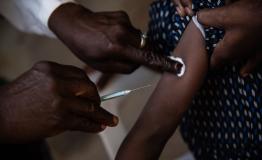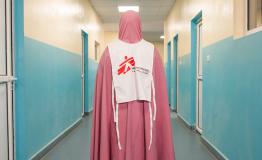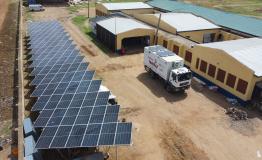On September 10, heavy rains caused the Alau Dam in Borno State to overflow, resulting in significant flooding in and around Maiduguri. This deluge heavily impacted homes, markets, fields, livestock, and several health facilities. According to Borno State authorities, between 1,000,000 and 2,000,000 people were affected, with close to 400,000 forced to leave their homes. Many healthcare centres, including several supported by MSF, were damaged and rendered inaccessible to those in need of medical care
In recent days, the Ministry of Health confirmed several cholera cases and reported dozens of suspected cases in Maiduguri following the devastating floods that struck the area two weeks ago.
Earlier, MSF expressed concerns about precarious living conditions and the potential for outbreaks of infectious diseases and malnutrition due to the flooding. We are calling for increased medical and humanitarian support, particularly in water, sanitation, and hygiene.
The Borno State government has launched a mass oral cholera vaccination campaign in Maiduguri. At the same time, the process of merging displacement camps is ongoing, with plans to consolidate most sites into three main camps for those still without shelter. Initially, these sites were to accommodate people for one more week, but authorities later indicated that they could remain open longer.
MSF teams are conducting outpatient consultations at these sites, providing mental health support and referring critical patients to the facilities we support. In some locations, we also offer essential services, including access to water through water trucking and tanks, as well as the installation and repair of latrines.
- Zulai Mohammed, 60 years old
- Interview conducted in Yerwa Camp, Maiduguri, Nigeria, 17 September 2024
- Yerwa Camp was closed a few days later.
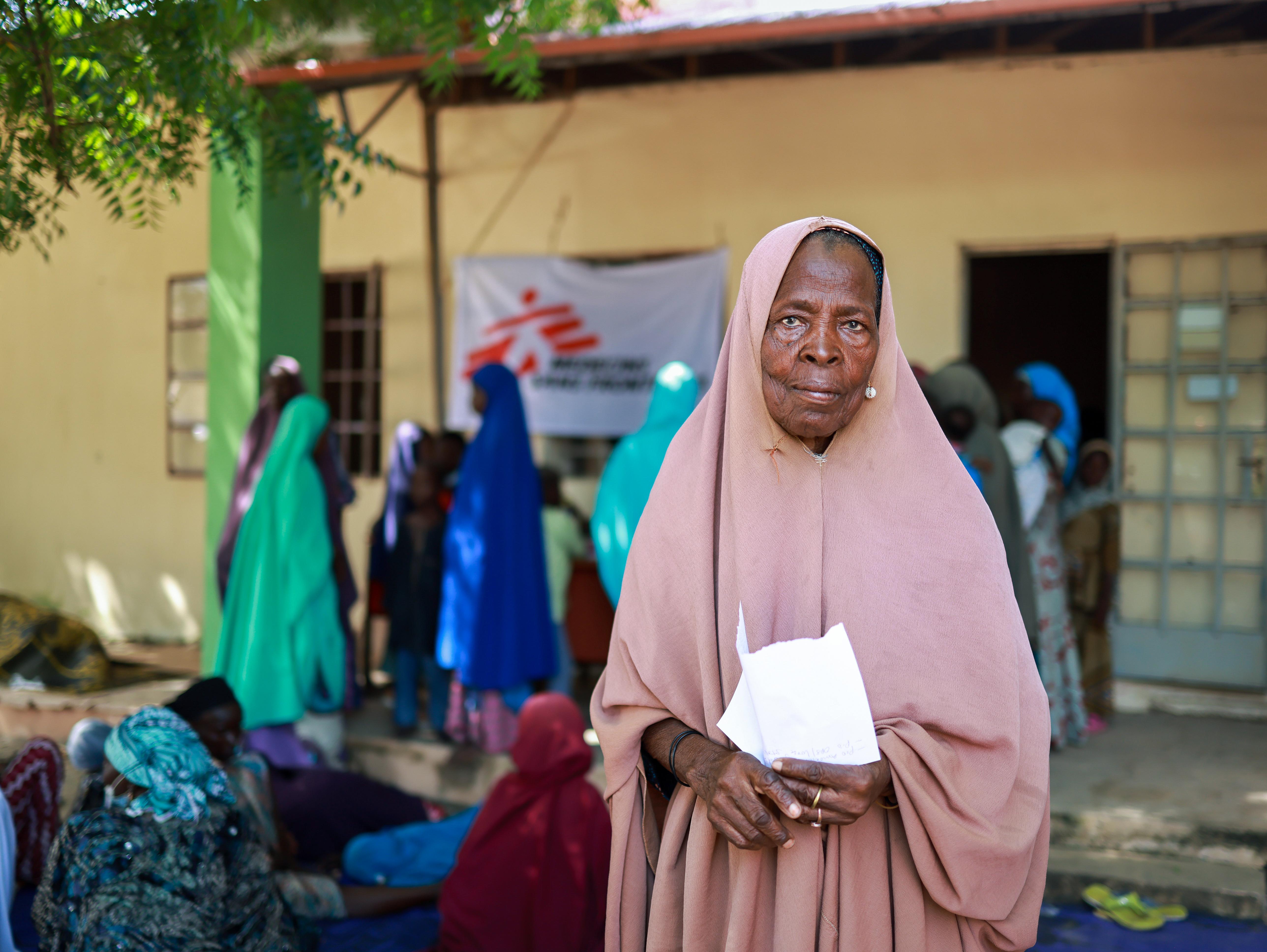
I live with my children and grandchildren in one rented apartment. We live in the same compound with about 40 other people.
Around 12AM we heard an announcement that there was flooding in our area. We were asked to evacuate with our family, but it was too late, the flood had already come.
We were able to escape with just the clothes we had on, and we spent the night sitting by the roadside. The following day, we came to this camp.
We could not take anything with us, even the food I had cooked. We left home around 12:30AM and have not been able to go back home. Here, at first there was no food or water. But for the past three days now, we have been receiving some. We don't have mattresses to sleep on, we sleep on the floor.
- Zainab Mohammed, 25 years old
- Interview conducted in Yerwa Camp, Maiduguri, Nigeria, 17 September 2024
- Yerwa Camp was closed a few days later
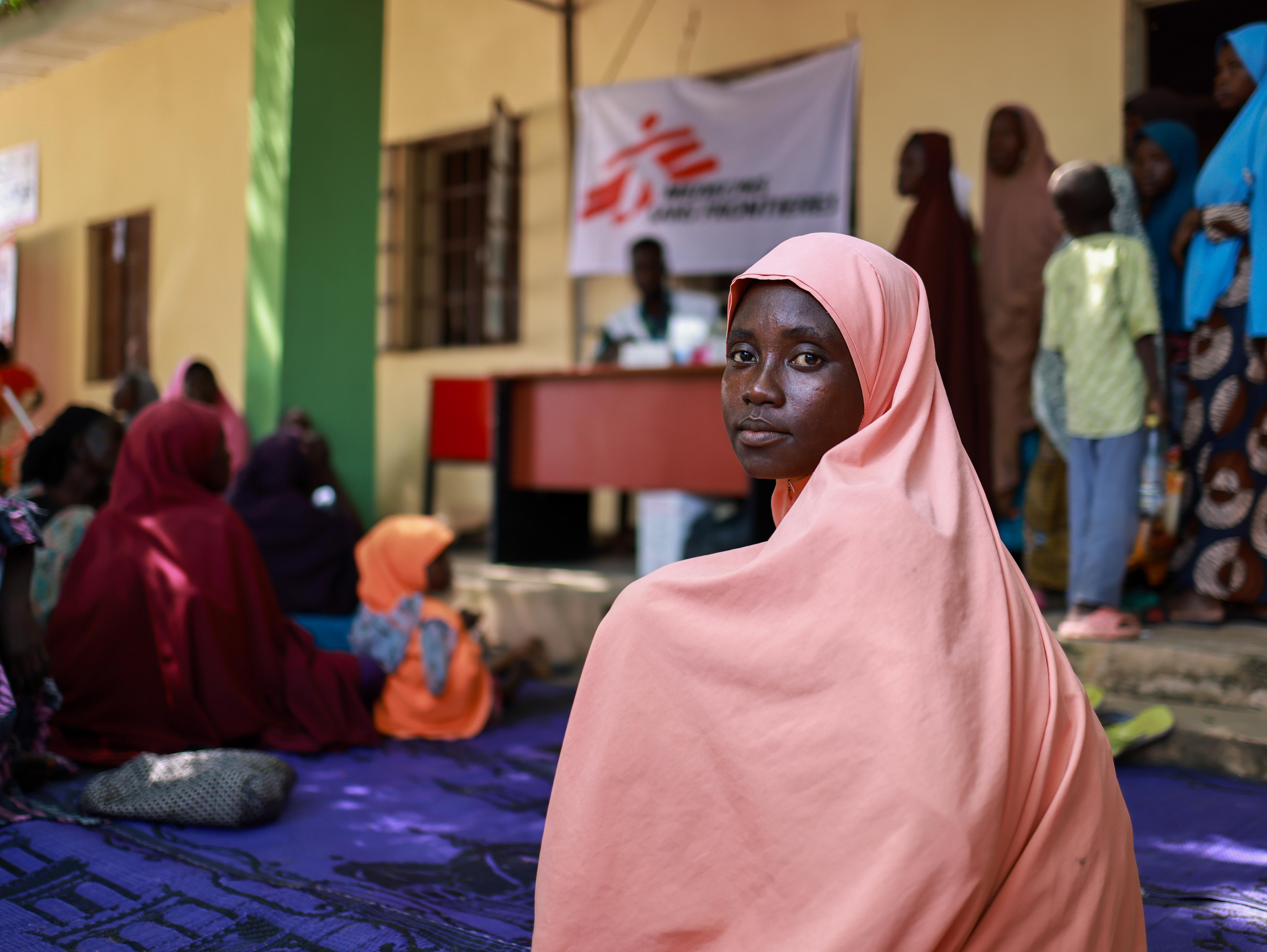
The flood sent us away from our homes. We couldn't save anything. We were lucky to survive.
I lived with my husband and three children. We heard the sound of water flowing into our house and by the time we checked, our house had been flooded.
It was difficult finding a way to escape but luckily, we made it out. We trekked for about two hours before reaching the camp.
Here we lacked food until a distribution was organized. We would love to be able to go back home because this place is not a good place to stay. But we don't have anywhere to go because our houses are still flooded. My children are vomiting and have watery diarrhea. It’s not clean here, and that I think may be the reason why my children are ill.
I have been sick for the past three days. I came to the clinic because I have a fever and persistent headache.
- Baana Mustapha, 35 years old
- Interview conducted in Teacher’s Village Camp, Maiduguri, Nigeria, 18 September
- Teacher’s Village is one of a few camps where people displaced by the floods can still find shelter.
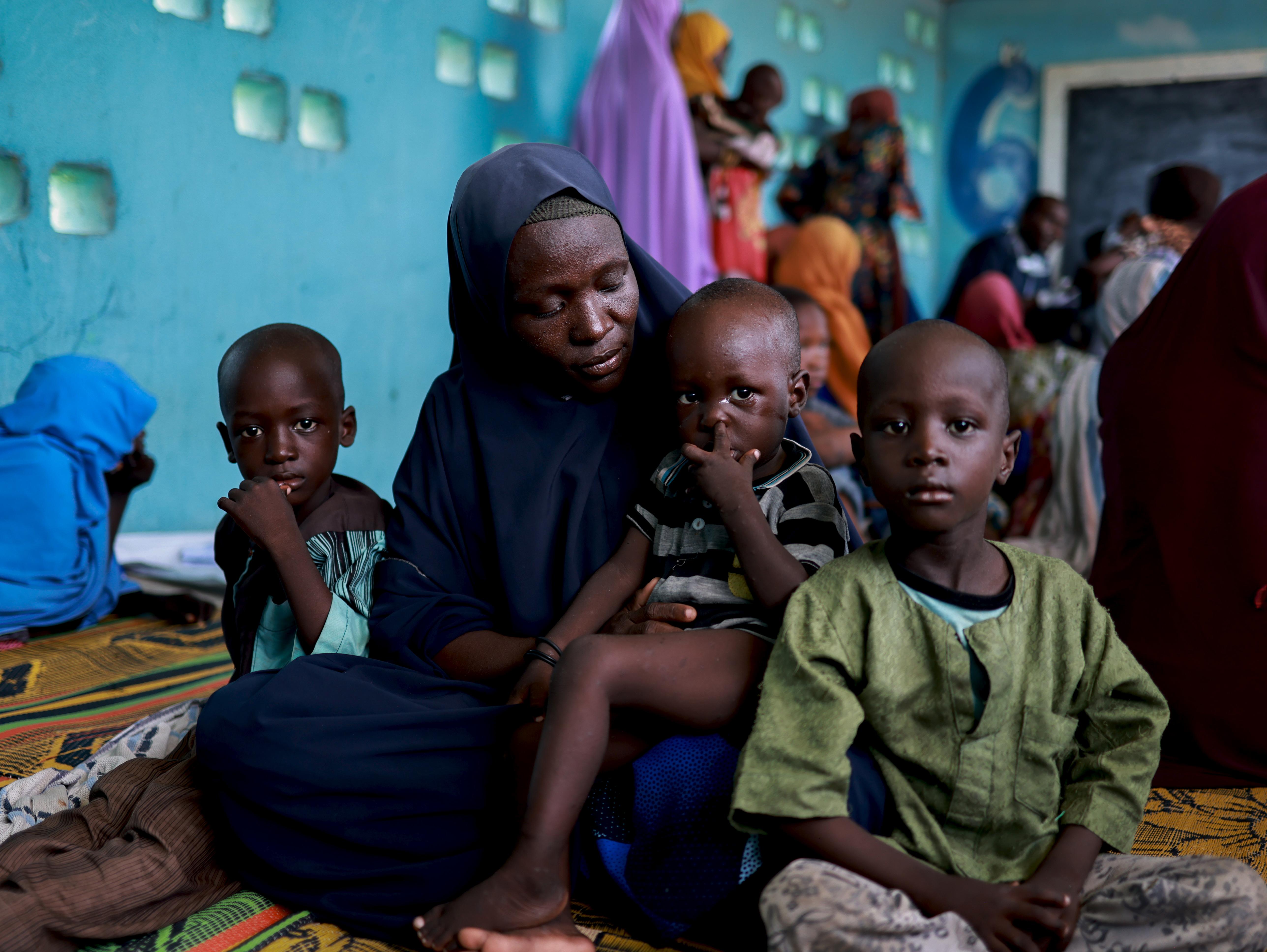
At night we heard that the part of town where my father-in-law lives was flooded. In the morning when my husband went to left to check on his dad, he returned to say that his father refused to leave the house even though it was flooded. He went back again to rescue his father but before he returned, our house had been flooded too.
We packed a few things in sacks and left with our children. We trekked to Texaco area and stayed under a tree. We spent day and night there receiving food from passersby before finally coming to Teachers Village Camp. Since the flood I have not seen my husband, but we spoke on the phone through our neighbour.
When we arrived at this camp, we didn't find a place to lay our heads, so we spent the night sitting. My children are ill that is why we I brought them here to see a doctor. I had to go out and get some food from a beggar to feed them. The living conditions here are bad. Since we arrived here, we couldn't get food to eat. We hope to get food to eat.
- Adama Gambo, 38 years old
- The interview conducted in Teacher’s Village Camp, Maiduguri, Nigeria, 18 September
- Teacher’s Village is one of a few camps where people displaced by the floods can still find shelter
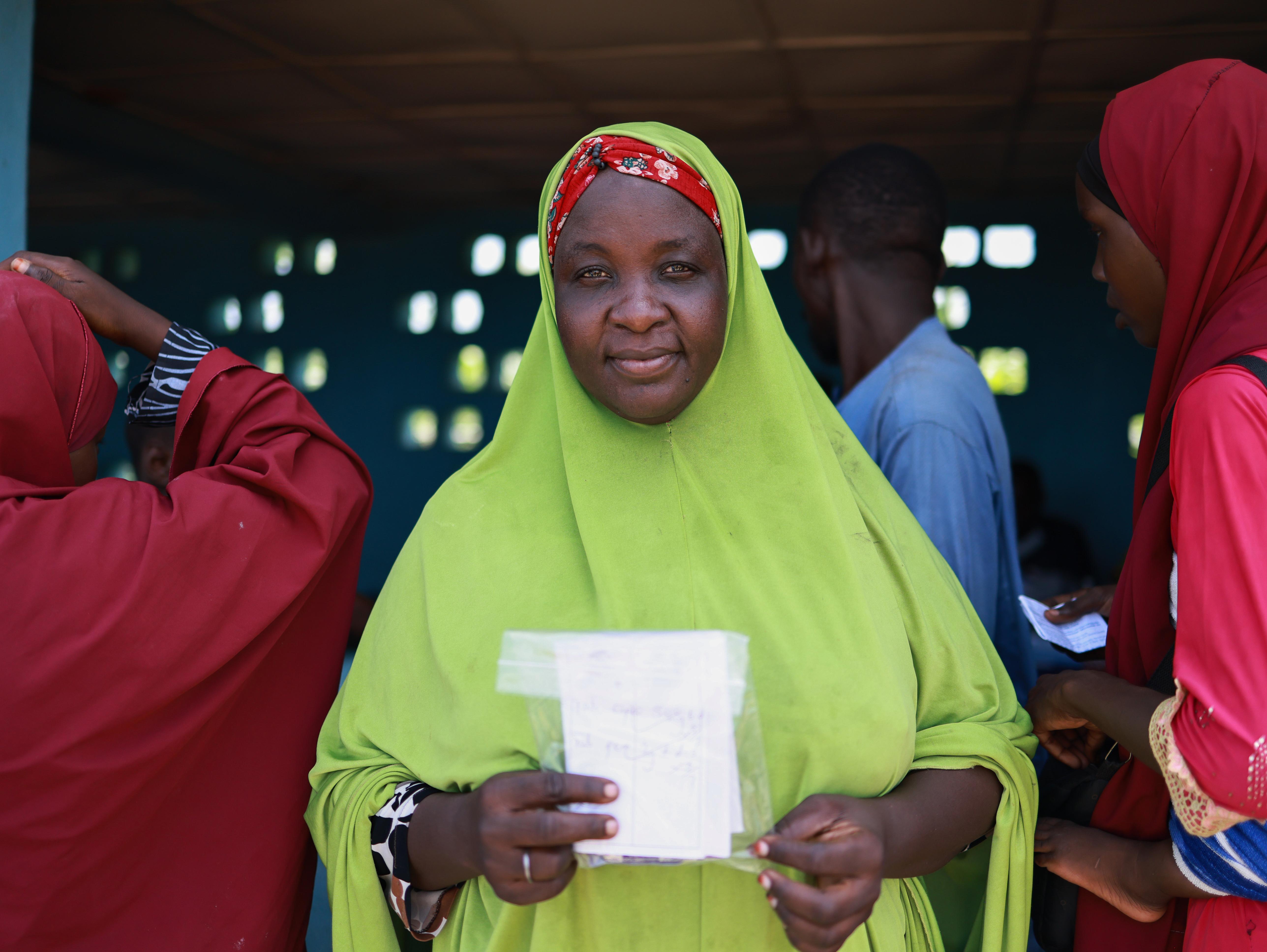
We left home early in the morning, because water had already flooded our home by then. When we got to the Emir's Palace, the water was around our chest, but luckily, we were rescued. We went to our relatives’ house but there was no space because too many people were already there, so, we came here. My family is here.
We have received some aid from organizations, but our major problem now is food. We don't have enough food, and we don’t have money. The food that is being distributed is yet to reach us; the last time we had food was two days ago. Even when you receive some donations, it is hardly enough. A thousand naira can do little because I am not here alone.
I am here to see the doctor because I have an ulcer, and I have not eaten for two days. For three days I have been trying to access healthcare but couldn't. Thankfully, today, I have been able to see a doctor. I have also gotten some medications.
We hope our houses dry up so we can return home. We are waiting for our male siblings who are at home trying to fix things, if they confirm that the flood has receded and our houses are dry, we will return home.
- Fatima Abdulkareem
- The interview conducted in Teacher’s Village Camp, Maiduguri, Nigeria, 18 September.
- Tashan Bama Camp is one of the camps where people displaced by the floods can still find shelter
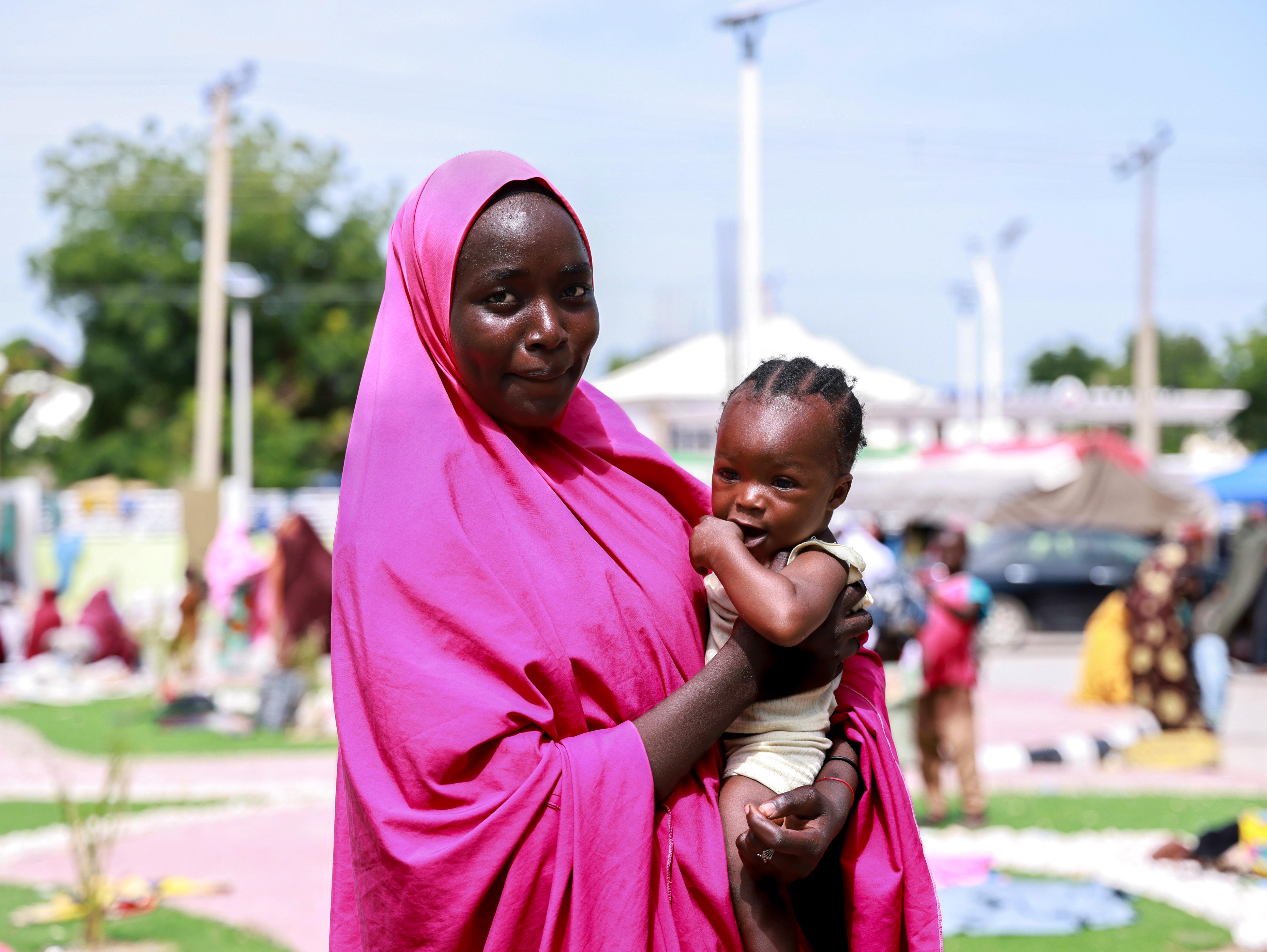
My name is Fatima Abdulkareem. On the day the flood began, we hoped it wouldn’t affect our home, but it eventually did, and we could not take anything with us. We are here in this camp because we do not have anywhere to go to. At first, I went to my aunt's house, but it was filled with people, so I had to come here with my mum and siblings. We sleep on the mat and blanket given to us by my aunt.
